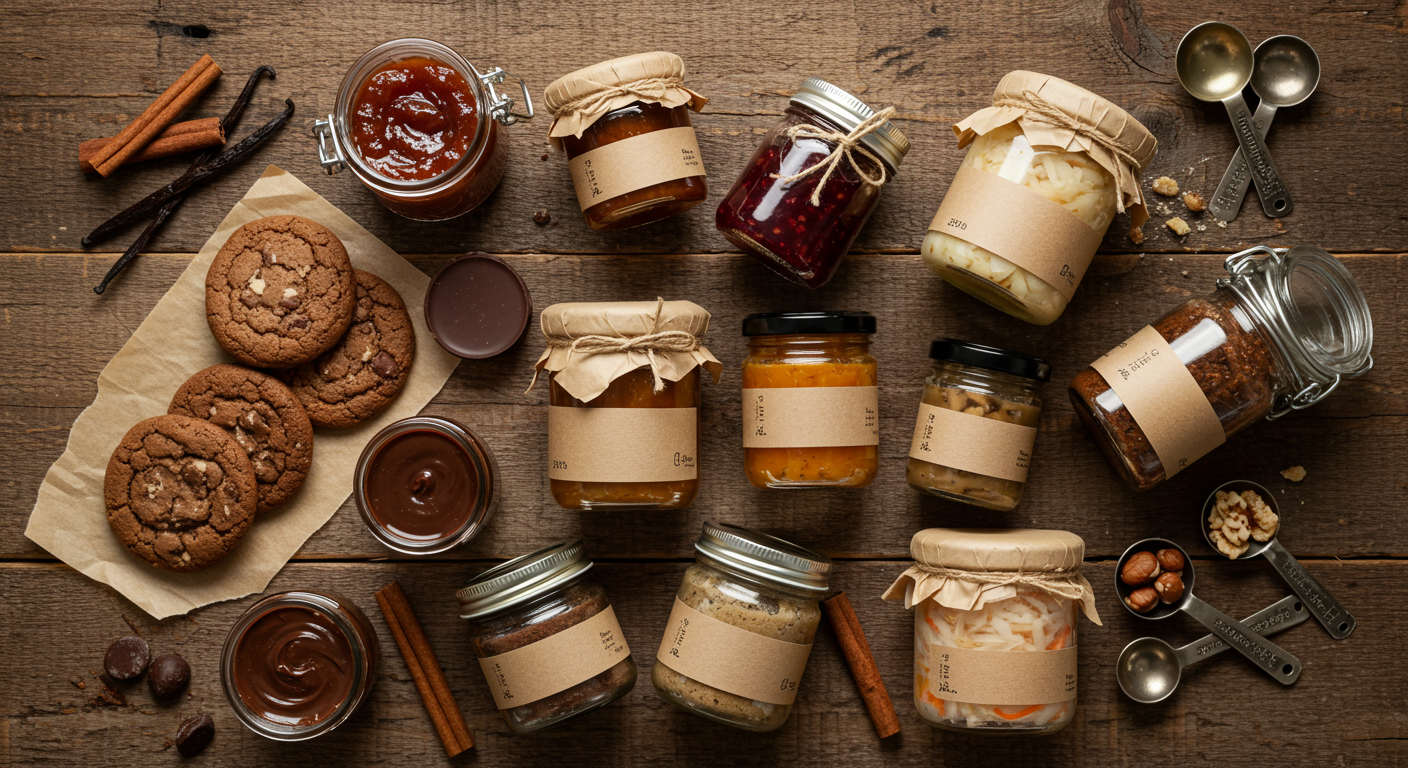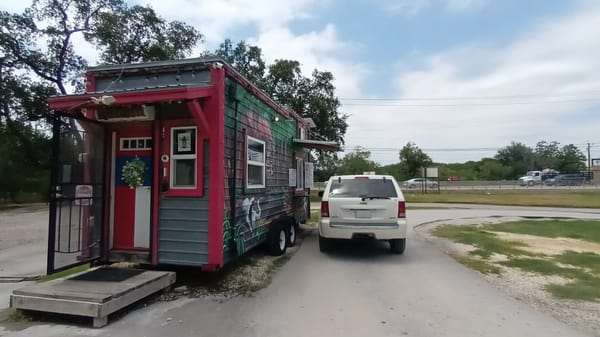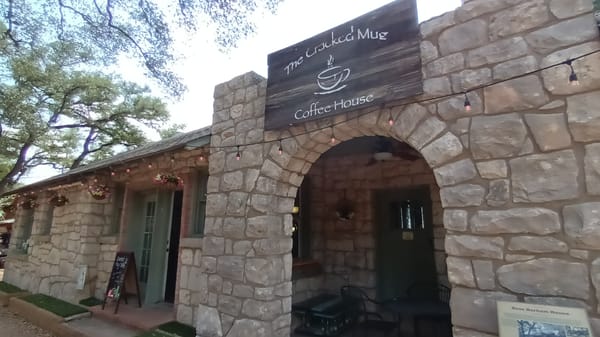Texas Cottage Food Laws Undergo Historic Expansion, Tripling Sales Limits and Opening Wholesale Markets
Texas is poised to become the nation's most cottage food-friendly state when sweeping changes to its cottage food laws take effect September 1, 2025, transforming opportunities for home-based food entrepreneurs across the Lone Star State.

AUSTIN, Texas — Texas is poised to become the nation's most cottage food-friendly state when sweeping changes to its cottage food laws take effect September 1, 2025, transforming opportunities for home-based food entrepreneurs across the Lone Star State.
Senate Bill 541, which passed the Texas Legislature with overwhelming bipartisan support, represents the most significant expansion of cottage food production rights in the United States since the cottage food industry began gaining momentum in the early 2000s. The legislation triples the annual sales cap from $50,000 to $150,000 and, for the first time, allows cottage food producers to sell through third-party vendors like grocery stores and cafes.
"This is a game-changer for thousands of Texans who want to turn their passion for food preparation into a sustainable business," said Judith McGeary, executive director of the Farm and Ranch Freedom Alliance, which has advocated for cottage food law reforms since 2011. "We're moving from a system that severely limited what cottage food operators could do to one that truly supports small-scale food entrepreneurship."
From Restrictive to Revolutionary Cottage Food Laws
The journey to cottage food freedom in Texas began just over a decade ago when selling any homemade food item was completely illegal. The first cottage food law in 2011 emerged from grassroots advocacy led by home baker Kelley Masters and the Farm and Ranch Freedom Alliance, who worked with state legislators to create limited exemptions for direct-to-consumer sales.
Under the original Texas cottage food law, cottage food producers could only sell specific baked goods and other non-potentially hazardous foods directly to consumers, with strict location restrictions and a modest sales cap. The cottage food production operation had to follow rigid food establishment rules that limited growth potential.
The new legislation adopts a dramatically different approach. Instead of listing specific allowed foods, SB 541 uses an exclusion model that permits cottage food businesses to sell virtually any food item except meat, poultry, seafood, ice cream, low-acid canned foods, and products containing CBD or THC.
"The old system was like trying to run a business with one hand tied behind your back," said Maria Rodriguez, a cottage food producer in San Antonio who specializes in fruit butter and chocolate ganache. "Now we can explore new products like cream cheese, fermented vegetables, and even refrigerated casseroles without worrying about violating the Texas cottage food laws."
Understanding the New Texas Cottage Food Law Landscape
The expanded cottage food law creates two distinct categories of cottage food products. Non-potentially hazardous foods like baked goods, fruit butters, nut butter, dried beans, and fermented foods can be sold through any channel, including the new cottage food vendor provisions that allow wholesale distribution. These traditional cottage food items can be prepared in the home kitchen and sold at farmers markets, farm stands, or directly to consumers anywhere in Texas.
Time and temperature controlled foods represent the second category under the new Texas cottage food law. These potentially hazardous foods require refrigeration or freezing and include items like cream cheese, cut vegetables, and prepared meals. Cottage food operators who want to sell these products must register with the Texas Department of Health Services and follow enhanced food safety protocols, including proper storage and transportation at safe temperatures.
The cottage food production operation must also maintain detailed records for time and temperature controlled foods, including production dates and safe handling instructions prominently displayed in 12-point font on food labeling. This represents a significant shift in basic food safety practices for the cottage food industry.
Economic Impact and Market Access for Cottage Bakers
The tripled sales limit addresses a critical barrier that prevented cottage food businesses from growing beyond supplemental income levels. With the Consumer Price Index adjustments built into the new law, the $150,000 cap will increase with inflation, ensuring that cottage food producers won't lose their exemptions due to economic factors beyond their control.
Perhaps more significantly, the cottage food vendor provisions open entirely new market channels. For the first time, Texas cottage food operators can sell non-potentially hazardous foods through grocery stores, specialty food shops, and restaurants. This wholesale access could transform cottage food production from a primarily direct-sales model to a scalable business opportunity.
"The ability to place products in retail locations changes everything," explained Dr. Saqib Mukhtar, a food safety expert at Texas A&M University. "A cottage food producer making fruit pie or unroasted nut butter can now potentially reach customers throughout their region instead of being limited to local farmers markets and direct sales."
The expanded law also eliminates local regulatory barriers that previously created a patchwork of requirements across different municipalities. Local governments can no longer require special licenses, permits, or fees for cottage food operations, creating consistent statewide standards.
Food Safety in the New Era of Cottage Bakeries
While expanding opportunities, the revised Texas cottage food law maintains rigorous food safety standards. All cottage food operators must complete an accredited course in basic food safety practices, with certification valid for two years. The food handler certification requirement extends to any employees not directly supervised by the cottage food producer, excluding household members.
For products like canned jam, fermented vegetables, and other acidified foods, cottage food producers must use recipes from Texas Department-approved sources or have their products tested by certified laboratories to ensure proper pH levels. The Texas cottage food law requires these products to maintain a pH of 4.6 or less to prevent harmful bacterial growth.
Record-keeping requirements have also been enhanced, particularly for cottage food businesses selling time and temperature controlled foods. Cottage food operators must maintain detailed batch records for 12 months, including recipe sources, batch numbers, and preparation dates.
Addressing Privacy and Practical Concerns
One of the most appreciated changes in the new Texas cottage food law addresses privacy concerns that deterred many potential cottage food producers. Under previous food labeling requirements, cottage food operators had to display their home addresses on all products, creating security and privacy risks.
Starting September 1, 2025, cottage food producers can register with the Texas Department to receive a unique identifier that can be used on food labeling instead of their home address. The required disclosure statement also changes from referencing health department inspections to simply stating that the product was produced in a private residence not subject to governmental licensing or inspection.
The law also permits nonprofit organizations to operate cottage food production facilities, provided the food preparation occurs in the home kitchen of a director or officer. This provision supports community-based food initiatives and expands access to cottage food opportunities for organizations serving low-income communities.
Looking Ahead: Implementation and Challenges
As the September 1, 2025, effective date approaches, the Texas Department of Health Services faces the challenge of developing regulations for the new provisions, particularly the registration process for cottage food operators selling time and temperature controlled foods and the cottage food vendor certification requirements.
Industry observers note that the success of the expanded Texas cottage food law will depend heavily on effective implementation and ongoing education for both cottage food producers and consumers. The cottage food industry has grown significantly since the first cottage food laws were enacted, but the scale of Texas's expansion represents uncharted territory.
"We're entering a new era for cottage food production in Texas," said McGeary from the Farm and Ranch Freedom Alliance. "The framework is in place for cottage food businesses to become significant contributors to local food systems and rural economic development."
The changes position Texas as a model for other states considering cottage food law reforms. With 49 states now having some form of cottage food legislation, Texas's comprehensive approach to expanding cottage food production while maintaining food safety standards could influence national trends in local food policy.
For the thousands of Texans who have turned their home kitchens into cottage food operations, September 1, 2025, marks the beginning of unprecedented opportunities to transform culinary passions into thriving businesses. From fruit butter producers in East Texas to chocolate ganache makers in the Rio Grande Valley, the expanded Texas cottage food law opens doors that were previously locked tight by regulatory barriers.
The cottage food industry in Texas stands at a historic inflection point, with the potential to demonstrate how thoughtful deregulation can support small-scale entrepreneurship while maintaining the food safety standards that protect consumers. As cottage food producers across the state prepare for the new era, the rest of the nation will be watching to see how Texas's bold experiment in food freedom unfolds.
Frequently Asked Questions About Texas Cottage Food Laws
Here are some of the most common questions we've encountered following the passage of these new Cottage Food Laws in Texas.
Understanding What You Can Make and Sell
What are some examples of foods that can be prepared at a cottage food production operation?
Under the expanded Texas cottage food law taking effect September 1, 2025, the range of allowable products has grown dramatically. Think of the new law as working in reverse from the old system. Instead of providing a short list of what you can make, Texas now tells you what you cannot make, leaving almost everything else available to cottage food producers.
You can prepare traditional cottage food items like baked goods, including cookies, breads, cakes, and pastries. Preserved foods remain popular options, encompassing fruit butters, jams, jellies, and pickled vegetables. The expanded law now welcomes products that were previously prohibited, such as cream cheese, refrigerated casseroles, cut fruits and vegetables, and even prepared meals that require refrigeration.
Fermented foods represent another exciting category now available to cottage food operators. You can produce fermented vegetables, kombucha, and other cultured products, provided they meet the required pH levels of 4.6 or less. Chocolate products, including ganache and truffles, are now explicitly permitted, as are various nut butters and specialty condiments.
The key to understanding what you can make lies in grasping what the law prohibits rather than trying to memorize an approved list. This fundamental shift in approach opens creative possibilities that were simply impossible under the previous regulatory framework.
What kinds of foods are not allowed as cottage foods?
The exclusion-based model of the new Texas cottage food law creates clear boundaries around food safety concerns while maximizing entrepreneurial opportunities. Understanding these prohibited categories helps cottage food producers recognize both the scope of their new freedoms and the safety principles that guide the regulations.
Meat, poultry, and seafood products remain completely off-limits for cottage food operations, with the notable exception of eggs, which are permitted. This restriction reflects the significant food safety risks associated with animal proteins and the specialized handling, storage, and processing requirements these products demand. Even if you raise your own chickens or cattle, you cannot process these proteins under cottage food exemptions.
Ice cream, gelato, popsicles, and other frozen desserts are prohibited due to the specialized equipment and strict temperature controls required for safe production. Similarly, low-acid canned goods pose botulism risks that require commercial-grade processing equipment and professional oversight that cottage food operations cannot provide.
Products containing CBD or THC remain prohibited, reflecting both federal regulations and state policies around cannabis-derived ingredients. Raw milk and raw milk products are also excluded, continuing Texas's longstanding restrictions on unpasteurized dairy products.
Understanding these exclusions helps cottage food producers focus their creative energy on the vast array of products that are now available to them, rather than pushing against safety boundaries that exist for legitimate public health reasons.
Where and How You Can Sell Your Products
Where can Texas residents sell cottage food products?
The revolutionary change in Texas cottage food law centers significantly on where and how you can sell your products, with the new legislation creating opportunities that were unimaginable just a few years ago. Understanding these sales channels helps cottage food producers plan business strategies that can scale from supplemental income to substantial enterprises.
Direct-to-consumer sales remain the foundation of cottage food operations, but the geographic restrictions that once limited these sales have been completely eliminated. You can sell directly to consumers anywhere in Texas, whether at your home, farmers markets, festivals, craft fairs, or through online platforms with in-state delivery. This statewide access means a cottage food producer in East Texas can sell to customers in El Paso, provided they handle delivery personally or through approved methods.
The groundbreaking addition in the new law is wholesale distribution through third-party vendors, which represents the most significant expansion of cottage food opportunities in the nation. Starting September 1, 2025, cottage food producers can sell non-potentially hazardous foods through grocery stores, specialty food shops, cafes, and other retail establishments. This cottage food vendor provision transforms the business model from purely direct sales to potentially scalable wholesale operations.
However, important distinctions exist between different types of products. Time and temperature controlled foods, which require refrigeration or freezing, must still be sold directly to consumers. The wholesale provisions apply only to shelf-stable, non-potentially hazardous products that don't require special storage conditions.
Where can you physically sell your cottage food products?
Physical sales locations for cottage food products encompass both traditional venues and exciting new opportunities created by the expanded law. The elimination of location restrictions means cottage food producers can establish sales presence wherever direct-to-consumer transactions are practical and legal.
Farmers markets represent the most popular traditional venue for cottage food sales, offering established customer bases seeking locally-produced foods. These markets typically provide infrastructure for sampling, which the new law explicitly permits without additional paperwork requirements. Farm stands, whether on your own property or at other agricultural locations, continue to serve cottage food producers well, particularly for seasonal products or those tied to agricultural themes.
Festival and event sales create opportunities for cottage food producers to reach new customers and test market response to different products. The new law's elimination of local permitting requirements means cottage food producers cannot be charged special fees or required to obtain additional licenses for these sales, though event organizers may still impose their own vendor requirements.
The most revolutionary change involves retail placement through the cottage food vendor provisions. Grocery stores, specialty food shops, delicatessens, and cafes can now carry cottage food products, provided they meet the registration requirements and limit sales to non-potentially hazardous items. This creates opportunities for cottage food producers to establish ongoing wholesale relationships rather than depending solely on direct sales efforts.
Home-based sales continue to provide convenience for both producers and customers, particularly for regular customers who appreciate the personal connection and convenience of direct pickup. Online sales with personal delivery expand this model statewide, enabling cottage food producers to build customer bases beyond their immediate geographic areas.
Licensing, Training, and Legal Requirements
Do you need food safety training to sell homemade food in Texas?
Food safety training represents one of the non-negotiable requirements that remain consistent between the old and new Texas cottage food laws, reflecting the state's commitment to maintaining public health standards while expanding entrepreneurial opportunities. Understanding these training requirements helps cottage food producers plan their business launch timeline and ongoing compliance obligations.
Every cottage food operator must complete an accredited course in basic food safety practices before beginning sales. This requirement extends beyond the primary operator to include any employees who are not directly supervised by the cottage food producer, though household members working under direct supervision are exempt from separate certification requirements.
The certification process is designed to be accessible and affordable, with courses available online for approximately ten to fifteen dollars. These courses cover fundamental food safety principles including proper hand washing, temperature controls, cross-contamination prevention, and basic sanitation practices that apply specifically to home-based food production environments.
The certification remains valid for two years, after which cottage food operators must complete renewal training. This ongoing requirement ensures that cottage food producers stay current with food safety best practices and maintain the knowledge necessary to operate safely as their businesses grow and evolve.
The training requirement reflects a balanced approach to regulation that recognizes the importance of food safety education without creating barriers that prevent people from starting cottage food businesses. The online availability and modest cost make compliance accessible to cottage food producers across rural and urban areas throughout Texas.
Do you have to get a zoning permit or business license from your city in order to have a cottage food business?
One of the most significant improvements in the new Texas cottage food law involves the explicit prohibition of local government interference in cottage food operations, eliminating a patchwork of municipal requirements that previously created barriers and confusion for cottage food producers. Understanding this protection helps cottage food operators recognize their rights and avoid unnecessary compliance costs.
Local governments throughout Texas are now prohibited from requiring licenses, permits, or fees specifically for cottage food operations. This means your city council cannot demand special business licenses for cottage food production, your county cannot impose cottage food permits, and local health departments cannot charge fees for cottage food oversight. This represents a fundamental shift in the relationship between cottage food producers and local government regulation.
However, important distinctions exist between cottage food operations and other business activities that may still fall under local jurisdiction. If you plan to operate a roadside stand, install permanent signage, or modify your property for customer access, local zoning ordinances may still apply to these physical improvements or activities, even though they cannot regulate the cottage food production itself.
The prohibition on local regulation means cottage food producers can focus their compliance efforts on state-level requirements without worrying about navigating dozens of different municipal approaches to cottage food oversight. This creates consistency statewide and eliminates the previous situation where cottage food legality could vary significantly between neighboring communities.
This protection extends to all aspects of cottage food operation covered by state law, including production, labeling, and sales activities. Local governments cannot create additional restrictions on cottage food products, impose additional labeling requirements, or limit where cottage food producers can sell their products within the broad parameters established by state law.
Do you have to carry liability insurance if you are operating under the cottage food law?
Liability insurance represents one of the most frequently asked questions among cottage food producers, reflecting legitimate concerns about financial protection while operating food businesses from home kitchens. The legal answer and the practical answer to this question differ significantly, and understanding both perspectives helps cottage food producers make informed decisions about risk management.
Texas cottage food law does not require cottage food producers to carry liability insurance, treating insurance as a business decision rather than a regulatory mandate. This approach recognizes that insurance requirements can create significant barriers for small-scale entrepreneurs, particularly those from lower-income backgrounds who might benefit most from cottage food opportunities.
However, the absence of legal requirements does not eliminate the financial risks associated with food production and sales. If a customer claims illness from your cottage food products, experiences allergic reactions, or suffers other harm they attribute to your products, you could face substantial legal and financial consequences without insurance protection.
Specialized cottage food insurance has emerged to address these specific risks, with programs like the Food Liability Insurance Program offering coverage starting around twenty-six dollars monthly. These programs understand cottage food operations and provide coverage tailored to home-based food production rather than requiring cottage food producers to navigate commercial food service insurance designed for restaurants and large-scale operations.
The decision about insurance should consider both your financial situation and your risk tolerance. Cottage food producers with significant personal assets may face greater exposure to financial loss from liability claims, while those just starting cottage food businesses might prioritize cash flow over insurance costs. Some cottage food producers find that insurance provides peace of mind that enables them to focus on growing their businesses rather than worrying about potential liability issues.
Understanding Regulatory Oversight and Compliance
Will the Department of State Health Services conduct inspections at cottage food production operations?
The inspection question touches on fundamental misunderstandings about how cottage food regulations work and why cottage food laws represent such a departure from traditional food service regulation. Understanding the inspection framework helps cottage food producers appreciate both their freedoms and their responsibilities under the cottage food system.
The Texas Department of State Health Services does not conduct routine inspections of cottage food operations, nor do local health departments have authority to perform regular oversight visits to cottage food production facilities. This absence of routine inspection represents one of the key features that distinguishes cottage food operations from licensed food establishments like restaurants, commercial kitchens, and food processing facilities.
However, this does not mean cottage food operations exist completely outside regulatory oversight. The Department of State Health Services retains authority to investigate cottage food operations in cases of immediate and serious threats to public health, including situations involving foodborne illness outbreaks, contamination events, or other emergency circumstances that pose clear dangers to consumers.
The inspection framework reflects the cottage food law's fundamental approach of enabling small-scale entrepreneurship while maintaining appropriate safety oversight. Rather than assuming cottage food operations pose inherent risks requiring constant monitoring, the law recognizes that properly trained cottage food producers operating within established parameters can maintain food safety without intensive regulatory supervision.
This approach places responsibility on cottage food producers to understand and follow food safety requirements, maintain proper records, and operate within the legal boundaries established by cottage food law. The absence of routine inspections creates freedom for cottage food producers but also emphasizes the importance of self-regulation and adherence to food safety principles.
Addressing Special Circumstances and Edge Cases
Can you sell cottage foods that include hemp or CBD?
The prohibition on CBD and THC products in cottage food operations reflects both federal regulations and Texas state policies regarding cannabis-derived ingredients, creating clear boundaries that cottage food producers must understand to avoid serious legal complications. This restriction applies regardless of the legal status of hemp-derived products in other contexts or the availability of CBD products in retail stores.
Federal regulations around CBD in food products remain complex and evolving, with the Food and Drug Administration maintaining that CBD cannot be legally added to food products intended for interstate commerce. Texas cottage food law aligns with these federal restrictions by explicitly prohibiting cottage food producers from incorporating CBD or THC into any cottage food products, regardless of the source or concentration of these compounds.
This prohibition extends to all cannabis-derived ingredients, including hemp seed oil, hemp protein powder, or any other hemp-derived additives that might contain even trace amounts of CBD or THC. The restriction is designed to be comprehensive and clear, preventing cottage food producers from inadvertently violating federal regulations or state policies through the use of hemp-derived ingredients.
The legal landscape around cannabis-derived products continues to evolve at both federal and state levels, but cottage food producers should understand that cottage food law provides no pathway for incorporating these ingredients, regardless of changes in other regulatory contexts. Cottage food operations that include CBD or THC products could lose their cottage food exemptions and face enforcement actions from multiple regulatory agencies.
Cottage food producers interested in health-focused or specialty dietary products have numerous other options for creating unique products without venturing into prohibited territory. Natural herbs, spices, and plant-based ingredients offer extensive opportunities for creating distinctive cottage food products while maintaining full compliance with cottage food regulations.
Can a city or county refuse to allow me to sell at a city festival?
The relationship between cottage food protections and local event regulations creates nuanced situations that cottage food producers should understand to navigate successfully while protecting their rights under state law. While local governments cannot regulate cottage food operations directly, they retain authority over events, venues, and public spaces that cottage food producers might want to access for sales opportunities.
City festivals, county fairs, and similar public events fall under local government authority for event management, public safety, and venue oversight. Event organizers can establish vendor requirements, charge participation fees, and set standards for vendors that apply to all participants, not specifically targeting cottage food operations. These requirements might include general business licenses, vendor permits for event participation, or compliance with local health department guidelines for temporary food service.
The key distinction lies between regulations that target cottage food operations specifically and general event management requirements that apply equally to all vendors. Local governments cannot charge cottage food producers special fees, require cottage food-specific permits, or impose additional restrictions on cottage food sales that don't apply to other food vendors at the same events.
However, cottage food producers should understand that event participation often involves requirements beyond cottage food law compliance. Events may require proof of insurance, compliance with fire safety regulations, adherence to electrical codes for temporary installations, or other safety requirements that apply to all vendors regardless of their food service licensing status.
Understanding this distinction helps cottage food producers approach event participation strategically, recognizing that cottage food law protects them from discriminatory treatment while acknowledging that events may have legitimate requirements that apply to all participants. Successful cottage food producers often find that building relationships with event organizers and demonstrating professionalism leads to ongoing opportunities and referrals to additional events.




